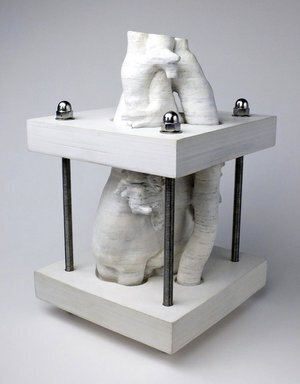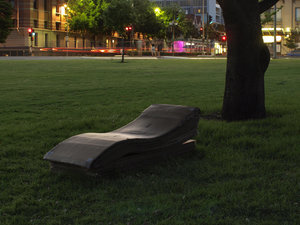John Blines describes his practice as, “divided into three interrelated activities: research, arts-in-health and the production of work. These activities converge on a central focus of identity, both internal and external. I am interested in the complexity of self and, in particular, via the added complication of illness, the changed self; change that is pervasive and indelible.
Research is the most vital aspect and governs my practice. Procedurally, my work is informed by the rhizomatic collecting and schematising of information as a means of organising, analysing and archiving data. Science and, in particular, biological and cognitive science, dominates my research, however, it is sited within a broader cultural and political context. Currently, my main research project is the relationship between epigenetics, psychology and cancer. The production of work can also be elemental research; materiality (or immateriality) of my work is fundamental and often involves experimental material processes.
A cancer infusion suite, a facility to administer patient cancer treatments, is a unique place. It is impossible to verbalise that uniqueness: it simply needs to be experienced. As an artist, to be welcomed into, and to share in the experience of, this special place is a privilege... Arts-in-Health is where I find value in art: value not designated by a dollar sign, but by an exchange of humanity.
The production of work is subordinate to research and almost incidental within my practice. For me, art is manifest in the research phase and realised in a moment of human interaction: an enduring art-object is superfluous and, indeed, overproduction contradicts my commitment to a sustainable practice.
I frequently employ process methodologies that embrace chance outcomes to produce work. A significant objective of this approach is fostering the ability of the mind to 'slip into neutral’: it is about 'not thinking - just doing'; finding respite for the mind. It can also be about the activity of work. I value materials that have the propensity for change and are ephemeral in nature. They are impermanent and, as such, the work can only ever be temporary.”




